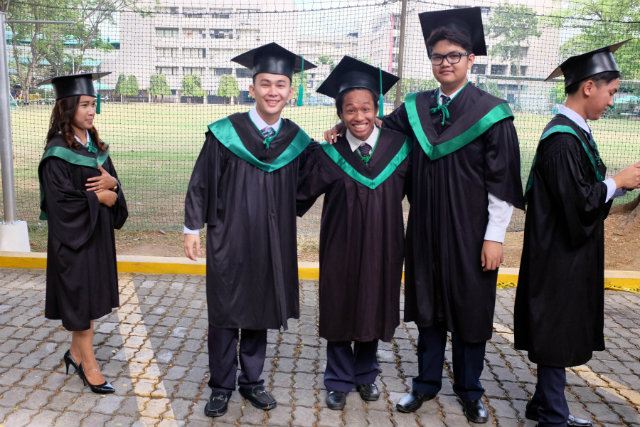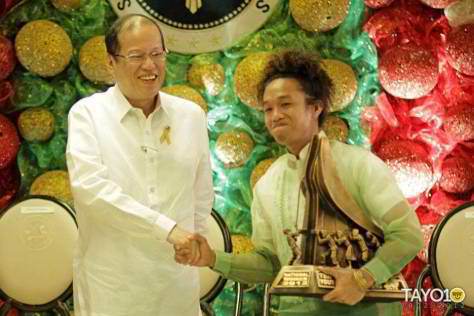Hope in the hopeless
I’m a firm believer in the power of the youth, their idealism, and their can-do attitude. But I will concede that there is a problem.
There are young Filipinos that commit terrible crimes – robbing, doing drugs, raping, even killing.
Yes, there are Filipino children who are not only exposed to systemic violence but also perpetuate and reinforce it by joining gangs and syndicates.
But while we must acknowledge this sad reality, we must not discount the youth’s capacity to positively impact the lives of fellow Filipinos.
We must also acknowledge the youth’s remarkable ability to change their lives for the good and even make the world a kinder, better place.
These are two polar ends of the same reality and we see the full range of this spectrum in the story of Rustie Quintana.
I met Rustie a few years ago. He was part of Dire Husi, which is a youth organization in Cagayan de Oro, and at that time, he was receiving the Ten Accomplished Youth Organizations (TAYO) Award in behalf of his organization.
The members of Dire Husi use arts and crafts to give streetchildren an alternative to their vices, such as drugs and gang violence.
What’s remarkable about Rustie is that he used to be one of those kids – a true batang kalye who would sniff rugby, snatch cellphones, do petty crimes and even be involved with syndicates in Cagayan de Oro City.
He was in and out of DSWD’s program for juvenile delinquents and even landed in Lumbia City Jail before being sent to the Regional Rehabilitation Center for Youth (RRCY).
But after years of being in and out of these institutions, he decided to make a change for himself. He decided to join Dire Husi and transform his life.
When he received the TAYO Award, he told me, “Kuya, noong ako’y nasa kalsada ng Cagayan de Oro, hindi ko po napangarap na balang araw mapupunta ako sa Malacanang at makakamay ko pa ang presidente para sa isang award para sa kabataan.”
Just recently, he graduated from Xavier University-Ateneo de Cagayan with the course Development Communications. The icing on the cake came when Rustie Quintana’s story was featured in Maalaala Mo Kaya.
It is this story of Rustie that came to mind when I reviewed House Bill Number 2, which seeks to amend the Juvenile Justice and Welfare Act (Republic Act 9344).
This initiative pursues a lowering of the age of criminal liability from 15 years down to 9 years old.
While I am relieved the policy’s author asserted that his objective is to rehabilitate juvenile delinquents and not throw them in jail with hardened criminals or worse, the bill filed does not seem to point to that path.
If the age of criminal liability is lowered, 9-year-olds might be tried as adults and be meted the corresponding penalties in our Revised Penal Code and other special laws.
So if a 9-year-old snatches your smart phone, this child who acted with discernment could be sentenced to 6 to 12 years in prison.
The current Juvenile Justice and Welfare Act already focuses on rehabilitation more than punishment. Erring children are likely sent to a Bahay Pag-Asa where they undergo therapy and are assessed periodically to check if they have been successfully rehabilitated and whether they can rejoin society.
The Bahay Pag-Asa in Davao and Bataan come to mind as institutions that do their task of helping and transforming these children well.
Instead of lowering the age of criminal liability, why not further support the already established youth care facilities and Bahay Pagasa centers first?
Why not improve the rehabilitation programs and make these centers more effective at addressing trauma and providing alternatives to a life of crime?
Why rush into solutions that could make matters worse instead of taking the extra effort to transform these young lives for the better?
Surely there are solutions that can address our problems of criminality and still have the best interests of our children at heart.
Hindi nag-iisa si Rustie.
There are numerous young Filipinos like him who have shown that given the opportunity to change, they can become Filipinos we can be proud of. And that ability and capacity to be better, gives us hope that our country can change for the better as well.
First Published on Manila Bulletin


Recent Comments